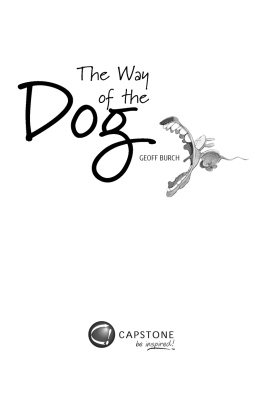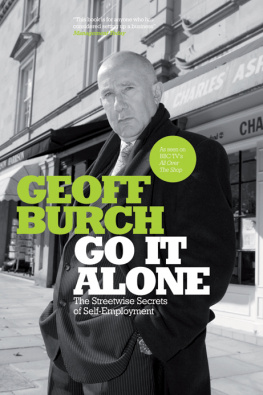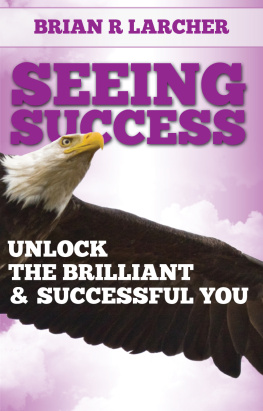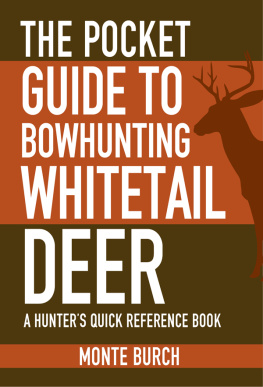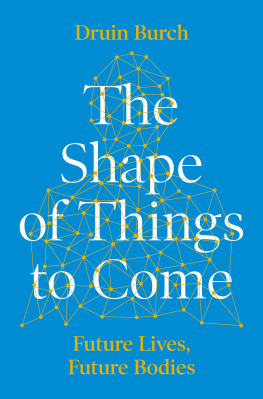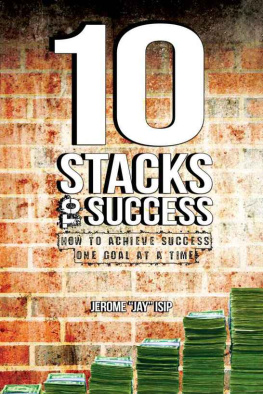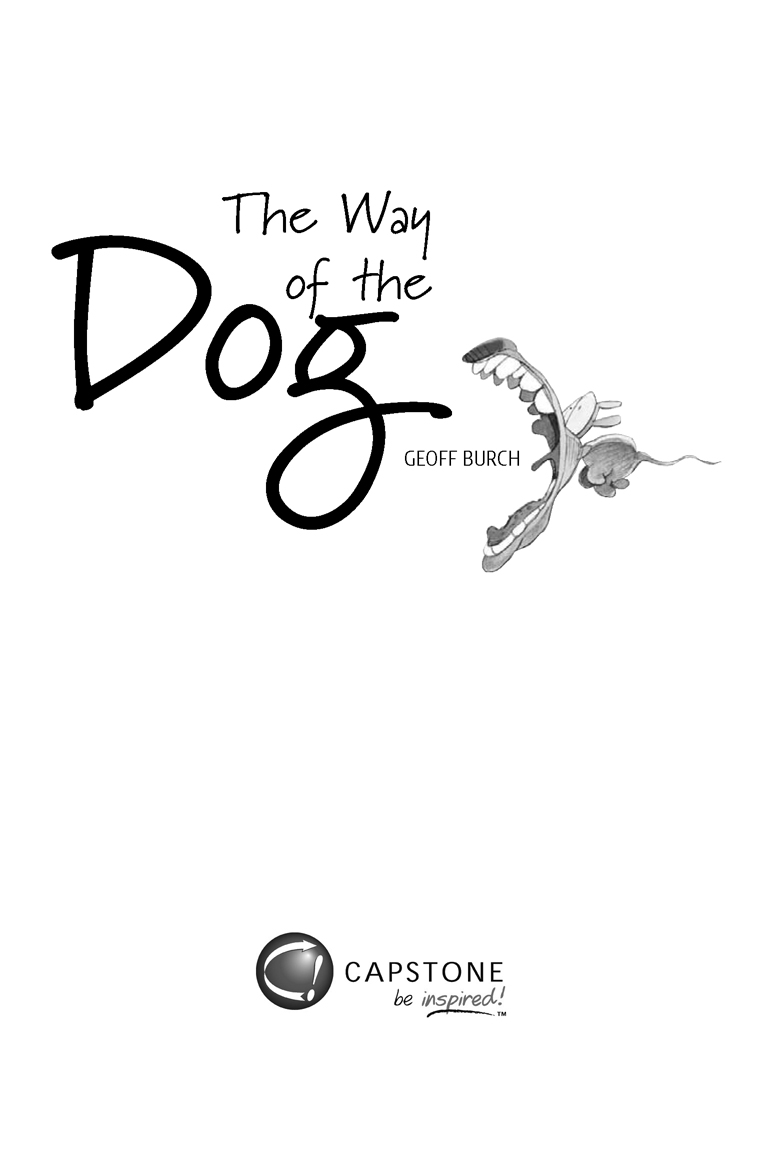Geoff Burch, 2005
The right of Geoff Burch to be identified as the author of this book has been asserted in accordance with the Copyright, Designs and Patents Act 1988
First published 2005 by
Capstone Publishing Limited (a Wiley Company)
The Atrium
Southern Gate
Chichester
West Sussex
PO19 8SQ
www.wileyeurope.com
E-mail (for orders and customer service enquiries):
All Rights Reserved. No part of this publication may be reproduced, stored in a retrieval system or transmitted in any form or by any means, electronic, mechanical, photocopying, recording, scanning or otherwise, except under the terms of the Copyright, Designs and Patents Act 1988 or under the terms of a licence issued by the Copyright Licensing Agency Ltd, 90 Tottenham Court Road, London W1T 4LP, UK, without the permission in writing of the Publisher. Requests to the Publisher should be addressed to the Permissions Department, John Wiley & Sons Ltd, The Atrium, Southern Gate, Chichester, West Sussex PO19 8SQ UK, or e-mailed to , or faxed to (+44) 1243 770571.
CIP catalogue records for this book are available from the British Library and the US Library of Congress
ISBN 1-84112-576-8
Typeset in Adobe Caslon Pro by Sparks, Oxford (www.sparks.co.uk)
Printed and bound in Great Britain by TJ International Ltd, Padstow, Cornwall
This book is printed on acid-free paper responsibly manufactured from sustainable forestry in which at least two trees are planted for each one used for paper production
Substantial discounts on bulk quantities of Capstone Books are available to corporations, professional associations and other organizations. For details telephone John Wiley & Sons on (+44) 1243 770441, fax (+44) 1243 770571 or e-mail
Dedication
To my wonderful wife, friend, boss, and owner, Sallie, who as everybody knows is the real brains behind the whole thing.
To my sons, James and Simon, whose successes have exceeded anything that I could have ever achieved and who have soared like eagles from our cuckoo's nest.
Acknowledgements
- My commissioning editor, John Moseley, for all his help and support.
- My friend, Paul Hurst, whose intensive scrutiny has corrected the errors of my ways (well, my pen, anyway).
- All my clients, whose adventures have been the inspiration to the story.
The Way of the Dog
The Story about the Story
Success, who needs it?
I am often accused - falsely, I hope - of being a motivational speaker, so inevitably on my travels to various conferences I bump into the genuine article. They get their audiences breaking bits of wood, pushing arrows to their throats, and even walking through fire. I watch aghast and can never see the point. What is it that people are getting? What do they gain from the dubious ability to walk through fire? Even more frightening is that, after one of my own tirades, people will come up to me and say they feel motivated and even inspired. Inspired to what? I wrote this book to try and help people get what they want, but what do they want? One conclusion I draw from this is that whatever it is that they do want, they don't want what they've got now, and the classic motivator can take them somewhere else at least. When I discuss this the professionals ramble on about visualization and goal setting, but these are very difficult if all you know is anything is better than this.
Apparently, what you should do is choose your ideal situation and visualize it. In a more businesslike or career situation, you should set goals, targets, or objectives. However, this has never motivated me; it is more likely to confuse me and leave me feeling that I have failed at something. Exactly what I have failed at, I don't have the foggiest idea.
It surprised me then when people said that I was successful. Successful at what? Successful, I suppose, at the things I set out to do. Therefore, bearing in mind my hearty and deep-felt cynicism, how could this be? Can ordinary, well-adjusted, fed-up people achieve whatever they want without some loopy Pollyanna view of the world? Could it be a simple process that, if deconstructed, could be bottled and sold with a guarantee? Perhaps, instead of goals and so on, we see what we want as a destination to journey towards.
An atlas of optimism
To make the journey logical, we need a starting point so that we can measure from where we are to where we need to be. Sometimes, we might find the distance too great to make the thing worth bothering with. If a journey is made from one place to another, the usual starting place is where you are at the moment. The first problem, therefore, is to have a very clear idea of where you are in the scheme of things. I love the joke of the person asking the way and being told, If I wanted to get there, I wouldn't start from here! Well, you do start from here, so be certain where here is and don't fool yourself into thinking you are somewhere else.
Actually, here's a profound (stupid, but still profound and faintly encouraging nonetheless) thought about journeys. You start off from where you are and travel toward your destination. After some time travelling, you stop for a rest and to take stock. Where you have stopped is a place too - in fact it is where you are now. When you measure that against your destination, it stands to reason that your original journey should be shorter - in other words, you are getting closer to where you want to be. If your destination is further or the same as it always was, you have cocked something up. If you drive on the highway and you see your destination is 50 miles away on a signpost, and at the next post it says 40 miles, things are going well. If it says 60 miles, you are going in the opposite direction. If, after a few hours of travelling, it still says 50 miles, you are going sideways. It makes sense, then, to see a signpost as quickly into your journey as possible. It would also be good to have a trustworthy road atlas or map.
Imagine having a positive-thinking or self-help atlas that when you look at the distance from London to Glasgow says, It's not as far as you think!.
And how to get there? The positive-thinking atlas says, 'Imagine that you are there, picture yourself standing in Glasgow. Believe you can do it and one day you will wake up and find yourself there. Complete rubbish, of course. A real road atlas shows the routes, the distances, and the places along the way. Actually, if I was being difficult, I might think about charts (as in sailing boats and ships, etc.): in a boat - particularly a sailing boat - you can make progress towards your destination without necessarily going straight there. You use your chart to find hidden dangers and surging tides. If the wind is against you, then you must tack. If your destination is 50 miles away, you might sail for 25 miles and find your destination is now 40 miles away. This won't discourage a sailor because they know that they are making progress, and they happily tack away.
An important point here is that one of the keys of safety at sea is knowing exactly where you are at all times.
Fear is the key
The first time I saw all this stuff work in my life was when I was young and first married, and we had clocked up a bank overdraft that threatened to sink us without trace. The day this monster hit the limit was a huge shock. We had been drifting along day to day and, of course, at the back of my mind I sort of understood that we were spending more than we were earning - but what the heck, something would turn up. Something turned up alright, in the shape of a very nasty letter from the bank manager which, in effect, said enough was enough and could they have their money back or else. I scampered round the house like a headless chicken. This was it, I had hit the wall and there was nowhere to go.

